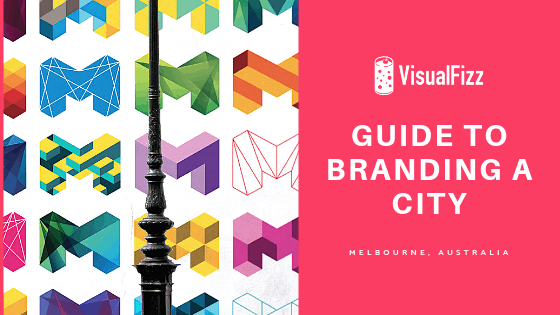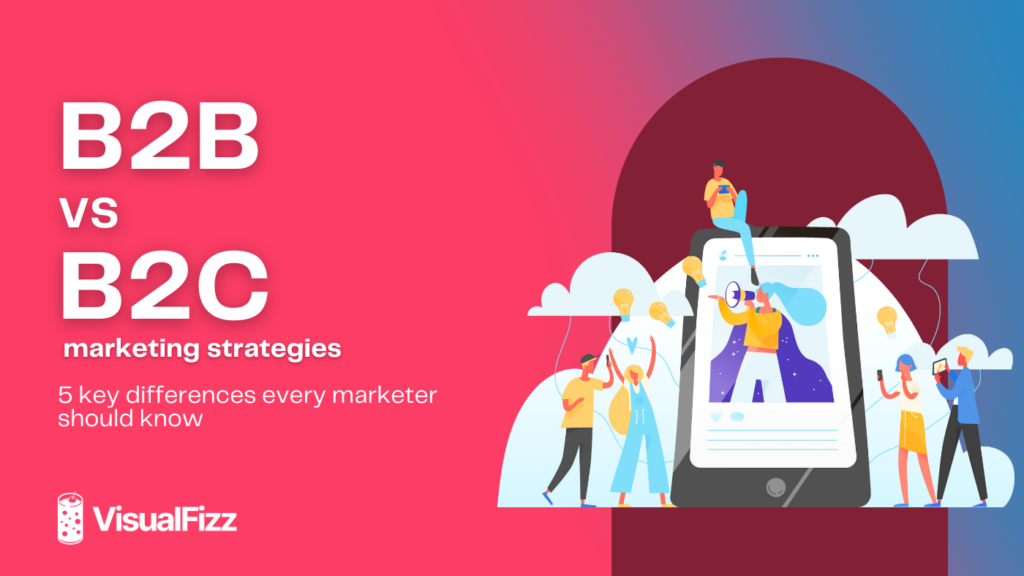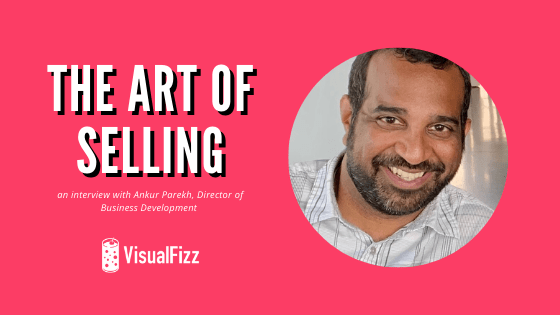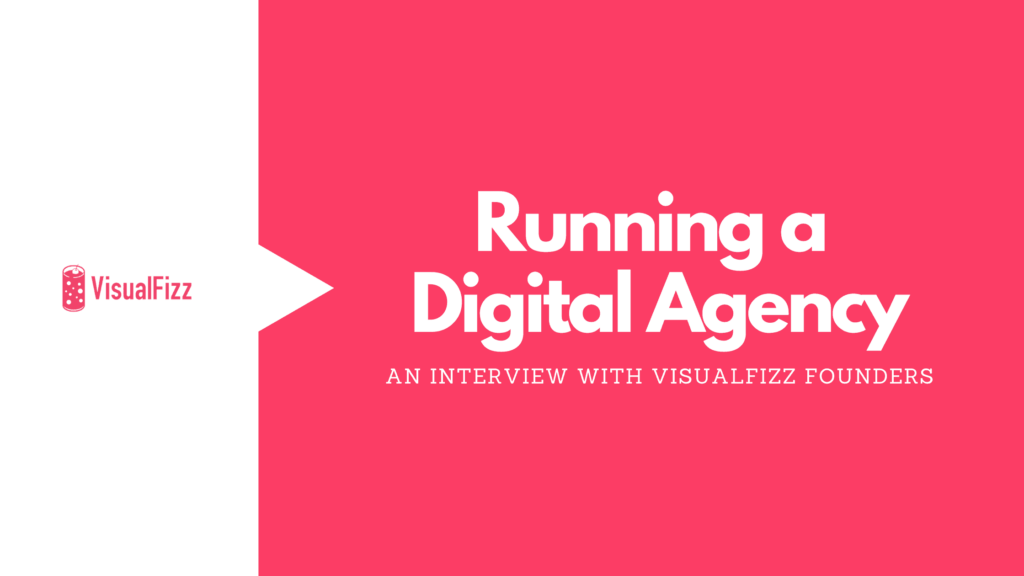
An Interview With VisualFizz Co-Founders
Chicago is the birthplace of modern advertising and the global headquarters for industry giants, like Leo Burnett and R/GA to name a few. Competing right alongside with these Chicago media groups is VisualFizz, a digital marketing agency in Chicago. VisualFizz is known for the exceptional quality of their web development projects and the monumental success of their social media campaigns.
We spoke with Dan Salganik and Marissa Ryan, the Co-Founders of VisualFizz, about what it’s like running a digital marketing agency in The Windy City.
Chicago is a unique city, but I don’t have to tell you that! What do you find most unique or most challenging about the Chicago market?
Dan: Essentially Chicago, along with New York and maybe in some parts of L.A. and a couple of other places, is really the birthplace of marketing. These names laid the foundation for some really strong marketing efforts, strategies, and approaches to campaigns. That’s allowed for a lot of companies to grow, but it also has made way for a lot of competition. Being a marketing company in Chicago is difficult, since there is so much competition.
Marissa: The most unique and challenging aspect of Chicago, and maybe even the midwest in general, is that there is usually no BSing when it comes to running your business. Folks tend to see right through you, for better or worse. While this usually means our friendly personalities and approach to transparency and honest communication are well-received, it also means that a lot of evidence to back-up your claims is required.
I feel that’s extra visible in the competitiveness of the digital marketing space here in Chicago. There’s a need for evidence in everything that we do at the agency. We’re all competing for the click, we’re all competing for the client, but what really makes or breaks both the sale and the project are the tangibles that you create.
Luckily, pushing that into our brand, into our agency, has always been critical. Creating the output that speaks to what we do and what we can offer is and has to stay a priority, and I feel it’s always been a competitive advantage for us. When it’s time to show up and do the work, the work has to speak for itself. And if the work doesn’t make the cut, you will be sure to hear about it.
I’m happy that both of you have mentioned that it’s a tough and competitive market. How do you stand out as a digital agency in a crowded market like Chicago?
Dan: It is not easy standing out. And it’s all about exposure because at the end of the day, even though we are always biased towards our amazing employees, and team members, there are a lot of very smart people out there. And so we can’t just sell ourselves on our quality because we know the quality is good. That we know that our competitors call it quality is also good because we used to work for them. So from our end, really, there are a few points of differentiation. One of them is that we are very active in the community, in the tech community, and the marketing community among others. We used to host a lot of events, and we were very active in the many different moving parts of the Chicago social culture, if you will. Obviously, we are a business and we are in the business to make money, but at the end of the day, it’s more about building long-term relationships with our clients.
Marissa: I think one of the ways that we really stand out, and that we keep standing out, is by our continued efforts to seek out unique, weird, or unusual marketing partners and projects. We love working on the tougher projects, the ones that aren’t really an exact one-to-one fit. It’s allowed us to continue to build out a spectrum of what we can offer and what we can solve at scale. It feels like a true startup in that sense; every day, every project, every campaign, every challenge is a little bit different than anything else we’ve come across before – thus the approach needs to be rooted in experience while remaining open, flexible, and ready for anything.
Our biggest advantage is that we’re not afraid to dig deeper than just what’s under the hood. We’re open and honest with the client from the beginning on our approach and understanding of what’s at hand. We explore and learn and analyze with the client to better understand their markets. Rather than pretending we have all the answers, that marketing is a sure science, or that all projects are the same, we go into campaigns knowing that we’re here to be scientists: to apply a tried-and-true approach, and to test, to analyze, to learn from the results from there.
That’s what’s allowed us to stand out from the crowd in the Chicago market. Each unique or challenging ad campaign or branding initiative we successfully navigate makes that particular challenge less unique, less of a challenge. If the goal is to constantly learn and grow, I recommend taking on the more challenging, more unique projects. This will require more communication and trust for your team, and sometimes a little more effort upfront, but the growth as marketers is unmatched.
Dan: One other thing, Marissa and I come from multi-generational, entrepreneurial families. And the drive to understand that money doesn’t grow on trees. Things don’t just happen because they happen. It’s always a combination of qualitative, quantitative data, understanding consumers, consumer research can go so much further. And a lot of that does come from the quote unquote street smart that you gained as a kid growing up with parents who are building something themselves. And I think that speaks very highly, very closely to a lot of the individuals who we work with, because a lot of them are either founders, self-starters, or individual leaders who built themselves up to the position that they’re in.
I love that you mentioned all of those factors, including where you’ve come from. And then looking at this year in particular. And yes, 2020, where many businesses have had to trim down. How were you able to maintain that growth?
Marissa: It’s interesting how we both approach growth too. Obviously, both of us care about company growth, but then we also have to think about reputation growth, and our online growth too. They both matter and they both affect our sales. So I think one of the first things that we did when the pandemic hit, we’re a remote company anyway. One of the most important things for us is just to secure our internal team. Just to tell everybody, Hey, we’re all going through the same thing.
So internally I feel we did a little bit of housekeeping, but we were able to really stay strong. And that led us to be a little more brave with the projects that we pitch on. We had our internal team take on some projects instead of hiring on extra specialists to come in, and really manage the particulars. We ourselves became the marketers. But it definitely felt like the saying, birds don’t trust the branch they’re on, they trust their own wings. To get a little philosophical, we were the marketers of the team. We were able to do the work. Dan and myself created the UX for some of the landing pages. We put together brand strategies. We wrote ads. Not to say that we didn’t keep all of our team members on, and on the project, but we were able to take on more work to stabilize us, and become as stable as we could be in such an environment, just by trusting our own abilities to deliver what we have always been delivering. And, we had that consistency of the remote culture that we had always, that we had built the very company on.
How were you able to keep those clients happy?
Dan: We have clients in very different industries and part of it is just being there. The thing about the client, about clients, or vendor relationships is it’s very easy to be friends and to be happy when everyone’s making money. But it’s much more difficult to actually maintain that, when people are struggling. And some of our clients did okay. While others were very much in the red trying to figure out what the next six months, or a year, or two is going to look like. And part of that relationship building that we talked about earlier, is being able to tell clients, we are with you guys until the end, if that ever came to be. And I think that’s really important and that’s the difference. Some people will just fire their clients. You have to be there and sink on the ship, with them, if that’s ever going to be the case.
Marissa: One of the main ways I feel our team has been able to protect ourselves and keep our clients happy. Of course, it’s a one-two punch, you just have to stay consistent. It means getting on client calls once a week, just to touch base with them, because everybody was freaking out. And the more consistent, stable strains of communication we can have amongst the projects, the better we’re all gonna be about it.
We were able to stay honest, stay open, touchbase often. Another thing that I like to do, I guess it makes me feel better in delivering a better marketing plan for the clients, it makes me feel like I’m contributing in some way. I look for extras. I look for bells and whistles that I can add on.
They’re real people too. We’re real people behind the scenes. It’s really easy to forget that. And, if we can all keep that top of mind, projects tend to be able to keep going and stay consistent, even in uncertain times.
That is a true partnership, to have investments from both sides. Can you share a success story from a campaign centered around a brand within the Chicago land area?
Marissa: Yes, I have a great one. I think 606 Digital is a success story. As it relates to, both the local market, as it relates to staying consistent through something like COVID. 606 Digital is a team of parents and regular working people that at the end of the night, have a long talk over a glass of wine about the work that they’ve done, the same way that we do. But they still had a business to run, they still had a team of developers.
So, we were very similar to sort of running parallel with each other in this partnership, there were a few situations with the client where we had, just for example, the writer that wasn’t the best fit for the client voice. It was really difficult for the client to put into specific words what they were looking for. Which is absolutely fair. They are not marketers. They are the client. We, as marketers, should be able to work through, and work through what they need. So that’s a lot of communication. It took a lot of openness, and honesty with the client.
The touch points that we have at the company, they themselves have children. We’re all working from home. There’s cats, and dogs, screaming in the background. There’s kids fighting with each other. All of this chaos, all of this stuff is happening and we’re still able to get consistent landing pages up. The client is making moves in SEO, and really getting some new work. Every time we speak to the client, they say, ‘Hey, we got a call from the paid search ads. It was interesting, because they found us through XYZ,’ and there’s usually some sort of multi-channel involvement, which is great for us to hear.
Dan: Yes. And one example that I would chat through is, one of our long-time partners. They’re one of those road paving companies in the country. But during this time, unlike recessions and times when you can still see people, they could no longer do their work. And they were scrambling, because nobody was going to the destinations that they were generally working on. And so we worked with them on actually creating a well organized video campaign which was all done organically, and without the need of a marketing agency.
So we knew that our revenue is not going to change, by making these recommendations. So what we did know also is this is empowering sales team members to do something that they can do at their home, with their significant other, or their kid, or by themselves even. And so, this allowed us to actually take on a pretty large local campaign for Chicago, Nashville, Tampa, LA and all their other Phoenix and other locations. Simply by telling them and showing their sales team members, who are definitely not videographers how to create a proper video, we’ll post it on YouTube. We’ll make it SEO friendly. We’ll do everything we need to do. Let’s make the videos, and let’s do it. And so, those videos which have had zero funding behind them. It’s purely organic, and has received thousands and thousands of views. So I feel that’s a huge win considering it was purely an organic campaign, which only took 10 to 15 minutes per salesperson.
Thanks for highlighting a couple examples. I’m happy that you mentioned SEO, and how important it is to a client, especially if they have a website. How has VisualFizz’s work in SEO helped other clients? Why is it necessary for a brand with a website to contribute, or to really focus on SEO?
Marissa: I think that the concept of SEO, it lends itself really well to the long game that we’re all playing here in COVID. We, as a marketing agency, marketing and extraneous things are one of the first things to get hit by budget cuts. Everybody pulls back on what they’re pushing out. In SEO, the things that you put out and push out content wise, or on the website, it takes six months to sit in.
This is a perfect time to build up those 20 blog pages that you’ve been waiting for. It’s ironic that the slow and steady wins the race approach, that we take to SEO, it pays off and in something like this where everybody’s freaking out. Search volumes are all over the place. It’s like the stock market, just because the data is kind of going crazy, it doesn’t mean you should pull all of your ad dollars out of your ad campaigns. You should look for ways to stabilize. You should look for ways to be smarter about spending. Pull back on what is being inconsistent, tighten the reins on what is ROI positive.
So I feel the brands and companies that were able to really turn inward, make sure that all of the content that they’re pushing out on the web really deserves the ranking that they’re trying to reach. It gave everybody a little bit of a chance to revisit their content strategies. But over time, over the long-term, the content and what you put on the web, it supports your brand, it makes up your brand, it’s all of your reputation.
Yes, that makes so much sense, especially when more consumers and potential visitors are going online when they can’t be in person. When would you say is the right time for a brand to hire an agency like yours?
Dan: If you’re a startup and you’re looking to hire an agency, you have to understand that there’s a fairly large investment that you have to be willing to make. And if you’re not a marketer, sometimes that investment is worth it because you should be focusing on what your strength is, and letting others focus on what their strength is. But at that very startup phase, when you’re not funded, it may make more sense to go with a contractor, or a couple of contractors, or freelancers to help you out. I think when you’re in that startup phase, when you’re in the growth phase, and you’ve either been funded, or you’re starting to get a bit of revenue, then it may make sense to bring on a marketing team that knows what they’re doing, and that’s sustainable. And that understands how to build startups.
We’ve grown to a point where we really want to work with companies that are small to midsize businesses in the growth stage. And this is a loose number, but they’re doing anywhere between maybe over five, $10 million up to a hundred to $200 million. And what that means is, allowing an agency like ours to come in and do what we know best.
But at the same time, if a company is looking for an ongoing long-term growth, and these are really the companies that we’re looking to work with. And so on our end, it doesn’t really matter so much about the size of the organization. Even the size of the marketing budget, as long as it’s sustainable. But the drive between both our teams, and their teams to push along a campaign or series of campaigns, which enabled growth for the organization. And then, in turn, obviously, allow us as an organization to grow with them.
Marissa: I think there are two times that really help determine when it’s a good time to bring on an agency. When there are questions that need answering. Just in general, any question is appropriate for marketing agency partnerships, if you’re not able to answer them yourself. Questions, like, ‘are my campaigns performing the way they should? How would my audience find me?’ If you’re an existing brand, ‘how can we improve our current marketing or our current messaging?’ All of these questions come up at different points in the marketing process in the marketing journey.
The second point when it makes sense to bring on an agency is when there are to- dos that are going undone. Many of us out there prefer to try it ourselves, prove to ourselves that we are unable to do it, and then call for help when we get to a certain point. However, if you are finding, as a brand manager of an existing brand, or someone who’s launching a new one, there are a lot of to dos that are going undone, or you’re not sure what to do next, or you know that you need a content strategy, and you know you need to build up brand presence.
When there are to- dos that are going undone with your current team. If it’s a team of one, if it’s a team of 20, then it makes sense to bring on a team that knows what they’re doing. That doesn’t have to wait for you to assign them tasks, and delegate to them, wants to do. They can just take that to-do list off of your plate all the way, and probably come up with some good ideas in the process of it. When there are questions that need answering, and, or when there are to- dos that are going undone that are preventing you from success.
I think those are some great steps to take. And also, to really understand when it’s necessary. What advice would you give companies who are building up their brand?
Dan: There are two things that I’ve always seen in successful companies. And this is not just general branding, I think it’s just building a company. And that’s consistency and persistence. Maintaining persistence to grow and constantly pushing further to become a larger company or organization. And then consistency amongst brands is incredibly important, because brands have to maintain their consistent brand voice, their brand tone. And if they don’t, they start to lose their customers.
Marissa: I have to echo the concept of consistency. And just being consistent about putting things of value out about the brand, whatever that is for your audience. Basically, the things that apply to SEO strategies, also applied to building a brand. Basically, we ask brands if they have these things, or we create these things for them. Whether that’s through a guided process, or us as a VisualFizz agency, actually creating the media ourselves.
We will come up with consistent ideas. We just need the green light and ability to do so. We need or need to create evidence of expertise. So we ask our clients, ‘if you are the best in the biz, or you deserve the click, or you deserve the sale, what evidence do you have of that?’ That usually means case studies. It usually means reviews. It means past portfolio items, proof of work that was accomplished. Evidence of expertise. Let’s prove to the audience, why we’re the best of the best or the most knowledgeable, the go-to, why we deserve it. And again, that concept of deserving, Google and other search engines, they ask for proof of why you deserve the first page? Clients come to us and they say, “Hey, I want to be on the first page of Google,’ without asking themselves, ‘do I deserve to be on the first page of Google? If I’m a user and I’m coming to the search engine, looking for the answer to the question, am I providing an answer? Am I giving them what they need? Or am I shouting as loud as I can to try and make it sale?’
That’s a different approach. So they’re two different things. So, we have to create or ask for proof that, whatever we’re doing deserves the first spot, the first page ranking. So when building a brand in an SEO strategy, or when building a brand in general, in the physical space, and the digital space. Or this in-between world that we kind of live in, consistency, evidence of expertise and proof that we deserve to be visible more than the next brand, is really how we build it at any time, even in COVID and beyond.
That’s a really great approach. And I think that’s very interesting, because it shows how much they know about their own brand. And it brings to light where they’re at. Do you have any predictions for the future of digital marketing?
Dan: I think you can’t predict the future of digital marketing because there’s always something new every year that people think is going to be the big thing. And I think the future of digital marketing is going to be especially, as we’re thinking about the new generations coming in. What is going to create impact for us as consumers? Because eventually we’re seeing there is so much consumption of information, of data, of video happening right now. I think similar to how there was this shift to millennials, who were hungry for information. And then you have Gen Zs, who are now more content creators, if you will.
As we’re moving towards a more authentic influencer, Influencers were massive. They still are, but people want authenticity. So I think the future of marketing as we were in a constant state of movement, is going to be a move towards more authenticity, more real, more experience.
Marissa: I do predict, in my crystal ball of marketing, that there’s going to be continued, new businesses and programs and brands centered around the organization of media that exists. And media that exists, what does that mean? More often than not?, it means a push towards something that someone created. Usually that’s a person, an individual and their personal brand. So, another prediction I have is that there will be this continued emphasis. And of course, towards the definition of someone’s digital brand. We talk about the ‘personal brand.’
Well now, as we continue to push towards the inseparable distinction between our digital selves, and our real IRL selves like tangible human cells, there’s going to be that push towards establishing that digital brand, as well.
So what does that mean? That probably means, more things like Behances, more things like TikToks, or Instagram profiles where it’s separated by the certain types of things that this influencer likes. I’ll be really centered around defining the digital self of the consumer, and then, how that digital self comes out as a digital brand. It’s this wild concept between personal branding and then the media that we consume. But I do think in the future of marketing, there will be a lot of push towards platforms that support the organization of the media that we create as individual brands.
What does the future of VisualFizz look like?
Marissa: I think the future of VisualFizz is an exciting one. I think that, especially during COVID, we have proven to ourselves time and time again that when we take risks, it’s a good idea to look before you leap, but leap pays off. I think we’ll work on exciting projects that are a little bit different than anything else out there. I think that will help us define our brand that much further. Work with companies that really value the uniqueness that a team like ours can bring to the table.
Dan: I think there’s a lot of opportunity for growth for VisualFizz. And when Marissa and I chatted in a little Chicago cafe in Logan Square years ago, I knew that based on what I personally would see, that there’s a lot of opportunity to grow. And so, I believe that within the next couple of few years VisualFizz will be as big as the big names in Chicago. And I think that the work that we continue to do will be that much more grandiose.
Every time, as a small business, that you bring in another full-time employer or employee, it’s an investment that we’re making and it’s a risk. But, in my eyes, I see the team members to be just in the forefront as myself and Marissa. And so, another part of the growth of VisualFizz is going to be the people who make up the company. Because we’re only as successful as the people who work with and for us, and for our clients, with our clients. So I’m really excited for that ongoing growth.
That is very exciting. I’m very excited to hear what’s going to happen. Just keep pushing onward and upward.
How to Work With VisualFizz
An interview with the cofounders of VisualFizz is a great way to learn about our agency, but we’d rather learn about you. Contact VisualFizz for a consultation. We’ll listen to your goals; chat about your brand, and get to work creating a custom strategy to not only complete your project, but unlock the true potential of your brand.
Publishing Date:

